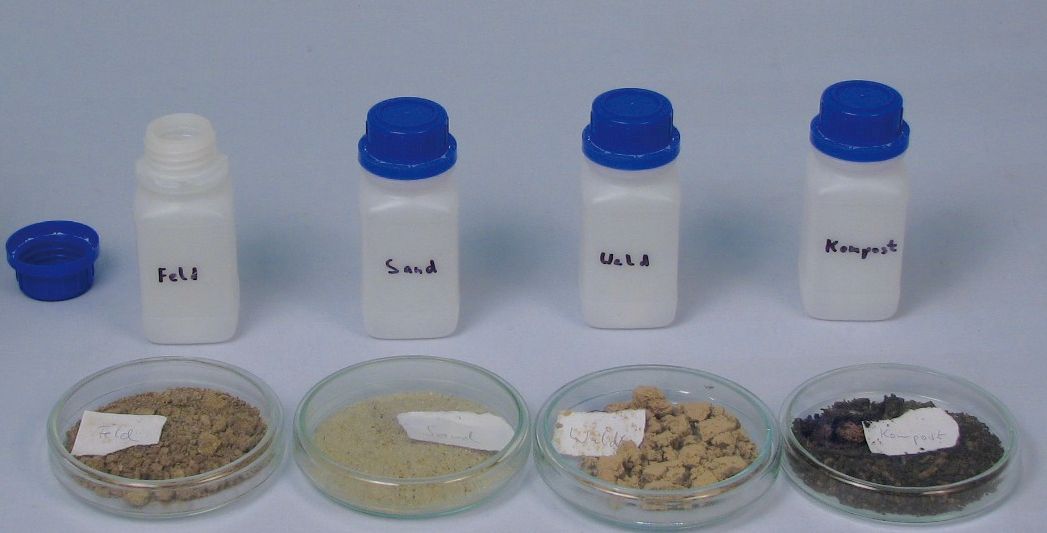Principle
How suitable are certain soils and plant substrates for plant nutrition? This experiment is concerned with measuring the conductivity of soils and plant substrates that have already been tested for the presence of nutrients for plant growth. It is also important to find out which of the soils and plant substrates already contain nutrients for plant growth and to which it is better to add plant nutrients in the form of fertilisers.
Plants obtain their nutrients in the form of ions from salts in the soil. The most important of the 16 nutrients that plants need for growth are nitrogen in the form of nitrates and ammonium, phosphorus in the form of phosphates and potassium in the form of potassium salts. In addition, soils need lime (calcium carbonate) to prevent soil acidification (pH reduction). For agricultural use, these nutrients are added to the soil via inorganic fertilizers. Potting soil added with fertilizers is used for indoor plants.
Benefits
- Experiment is part of a complete solution with numerous experiments in the field of ecology
- Measurements possible indoors and outdoors, for mobile and desktop use
Tasks
- Selection of suitable samples
- Preparing samples for analysis
- Determination of the conductivity of the samples
- Comparison of the measured values of the samples
Learning objectives
- Salt content
- Soil samples
- Planting substrates
- Fertilisers


